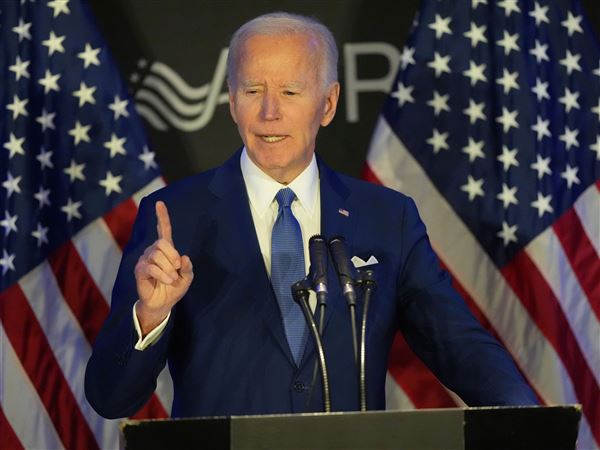WASHINGTON -- It was designed to be the budget cut so painful, so indiscriminate, so downright mindless that even a gridlocked Congress wouldn't allow it to happen.
Now, it looks like it's going to happen.
Senate Majority Leader Harry Reid, D-Nev., and Senate Minority Leader Mitch McConnell, R-Ky., spent Saturday working on a last-ditch deal to spare the vast majority of Americans a dramatic tax increase on Jan. 1.
But even if they reach a stripped-down agreement, aides in both parties have said it would be unlikely to address the other part of the "fiscal cliff," an automatic $110 billion reduction in government spending, split evenly between military and domestic programs, that is scheduled to take effect the next day.
Aides said the two sides hope to secure a large spending-reduction package in the late winter -- during an expected showdown over lifting the federal debt ceiling -- and deal with sequestration, as the automatic cut is called in Congress-speak. But that possibility would still result in a potentially harrowing few months for agency budgets.
In the meantime, the Washington, D.C., region, home to hundreds of thousands of federal workers and an economy that was cushioned from the worst of the 2007 recession by federal spending, was bracing Saturday for an economic punch from the failure to deal now with sequestration.
Federal agencies have informed their employees that they probably wouldn't feel the impact immediately, but the reality of furloughs is setting in for a deeply anxious federal workforce.
Fiscal cliff talks remained in flux Saturday, and the details of a final deal, if there is one, remain unclear. But at a White House meeting of President Barack Obama and congressional leaders on Friday, House Speaker John Boehner, R-Ohio, said he could not agree to delay or call off the automatic cuts unless Congress agreed to enact an alternative package of reductions of matching size.
That would seem a tall order given that spending cuts have been at the heart of the partisan divide over the past two years. A House Republican said after the Friday meeting that "it was clear that the sequester is not likely to be addressed in any immediate agreement."
And although Mr. Obama vowed during an October debate with Republican presidential nominee Mitt Romney that the cuts "would not happen," White House officials were telling liberal allies on Friday that their focus for now is merely to spare the middle class a tax increase.
The development was causing near panic among industry groups and others who have prodded Congress to cancel the cuts and have long believed elected officials who said they would do so.
"It would be a grave dereliction of duty to drop" a sequestration fix from a final deal, Marion Blakey, president and chief executive officer of the Aerospace Industries Association, said Saturday. The group represents 300 aerospace and defense companies. "We can't believe they would fail our military and our economy like that."
The problem with sequestration is not so much the size of the cuts but their scope.
With the exception of a few programs specifically spared by Congress -- including Medicaid, Medicare benefits and food stamps -- every government account would be sliced by the almost same amount.
The White House has said that all domestic programs that were not specifically shielded would face an 8.2 percent cut next year. Military programs would be cut by 9.4 percent.
Air traffic controllers, courthouse security guards, National Institutes of Health cancer researchers -- all would face the same crunch.
Federal workers are still expected to report to their jobs Wednesday as normal. But agencies would quickly institute hiring freezes, restrict travel and reduce technology spending. And, without congressional action to reverse the cut, widespread furloughs would be possible as agencies grapple with squeezing the amount they have to spend through the end of the fiscal year on Sept. 30.
On Friday, the administration formally outlined for employees the nuts and bolts of how the temporary layoffs would work.
Particularly problematic, economically and politically, are scheduled cuts at the Pentagon, which Defense Secretary Leon Panetta has said could have a devastating impact on the military.
Sequestration was always intended to be an incentive to force Congress and the White House to find a better alternative.
It was enacted in the summer of 2011 during the debt-ceiling fight.
First Published: December 30, 2012, 5:00 a.m.















